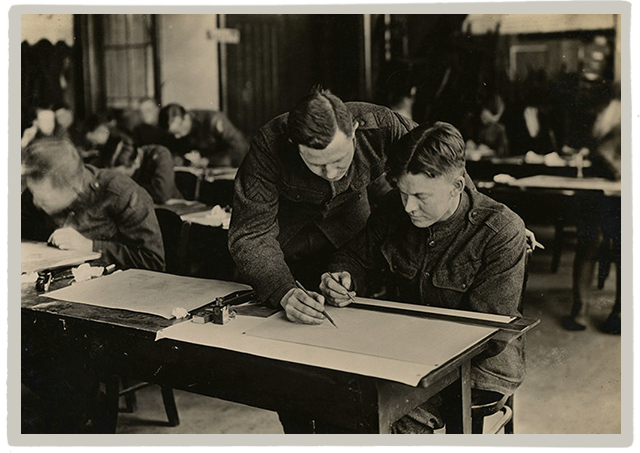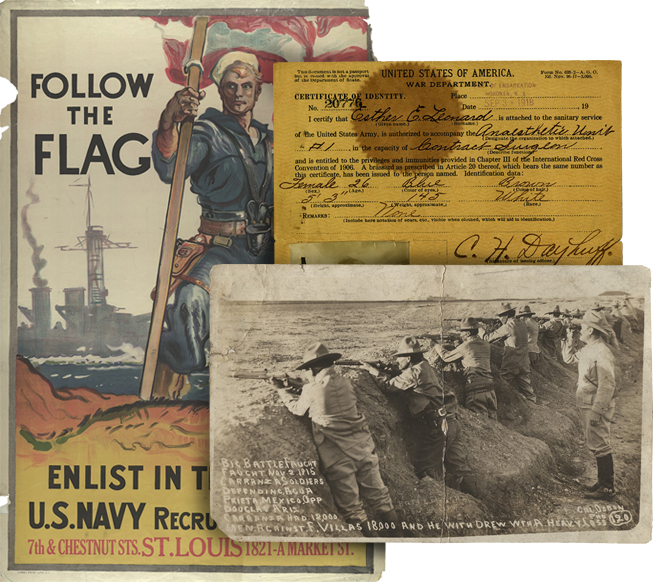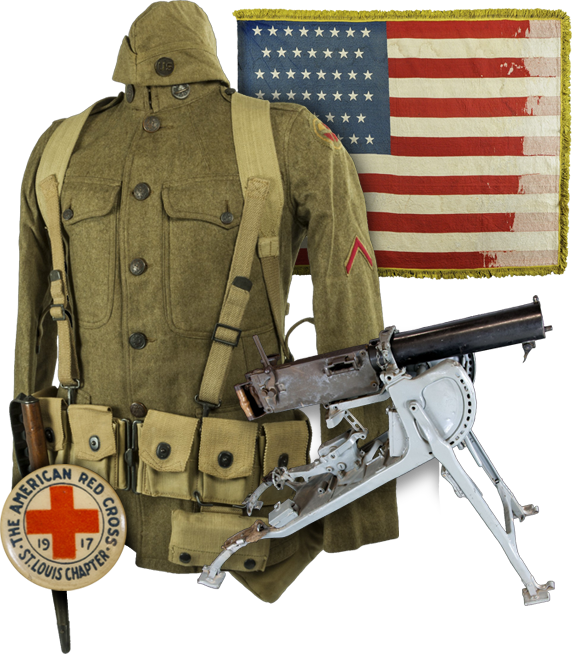Navy Recruiting Station. The Navy needs more men both for the Reserve, and for the regular service - ca. 1914-1918

Transcript
NAVY RECRUITING STATION. 200 GUMBLE BUILDING Kansas City, [Missouri]. To the Public: The Navy needs more men both for the Reserve, and for the regular service. The Navy Department has issued a hurried call for men skilled in certain lines of work. Cooks, Bakers, Musicians, and Radio or Telegraph Operators are especially needed at the present time. These men can enroll in the Naval Reserve Force, members of which are only required to perform active duty in time of war. Friendly aliens, if well qualified can be enrolled in the Reserve in these branches on first citizenship papers. All men enrolled in these branches are almost certain of active sea duty immediately. The pay of these men is as follows: Cooks 1st class receive $66.50 per mo. [Cooks] 2nd class receive 52.00 per mo. [Cooks] 3rd class receive 41.00 per mo. Landsmen for Ship’s cook receive 32.60 per mo. Bakers 1st class receive 55.00 per mo. Musician 2nd class receive 41.00 per mo. [Musician] 1st class receives 43.20 per mo. Bandmasters receive 63.20 per mo. Radio Operators 1st class receive 61.00 per mo. [Radio Operators] 2nd class receive 52.00 per mo. [Radio Operators] 3rd class receive 41.00 per mo. Firemen, Machinists and Water Tenders are needed for Station Duty. As theseimeniarento be used in connection with local heating plants, it will not be necessary for them to stand the same rigid examination as they would for sea duty. The pay of these men is as follows: Firemen 1st class receive $46.50 per mo. [Firemen] second class receive 41.00 per mo. [Firemen] 3rd class receive 36.20 per mo. Machinists Mate 2nd class receive 52.00 per mo. Water Tender receives 52.00 per mo. All of the above men enrolling in the Reserve must be between the ages of 21 to 56. In the regular service there are still openings for Apprentice Seamen and Firemen 3rd class, Landsmen for Machinists Mate (Aviation corp), Landsmen for Electrician, (Radio), Cooks, Bakers. The pay of these men is as follows: Apprentice Seamen receive $32.60 per mo. Fireman 3rd class receives 36.20 per mo. Landsmen for Machinists Mate receives 32.60 per mo. Landsmen for Electrician (R) receives 32.60 per mo. Apprentice Seamen must be between the ages of 18 and 30 Firemen 3rd class must be between the ages of 21 and 35 Landsmen must be between the ages of 18 and 25. With the large increase in personnel of the Navy, a good man is sure of rapid advancement, in all branches, both in the reserve and in the regular service. No applicant can be accepted who has been notified or whose name has been posted to appear before Examiners, under the Selective Draft Law. JM Orchard Commodore U.S. Navy, Ret., Recruiting Officer.
Description
This World War I poster is part of a larger collection of propaganda material issued throughout Missouri during the war. These artfully crafted posters were distributed to help recruit men for the Navy and Marines, raise money for the war effort, and sustain public morale. This poster lists the various positions that the Navy needed and the corresponding monthly monetary compensation.
Details
| Title | Navy Recruiting Station. The Navy needs more men both for the Reserve, and for the regular service - ca. 1914-1918 |
| Creator | Unknown |
| Source | Unknown. Navy Recruiting Station. The Navy needs more men both for the Reserve, and for the regular service. 1914-1918. Violette E.M. Collection. WWI_230.47. Truman State University, Kirksville, Missouri. |
| Subject LCSH | World War, 1914-1918; World War, 1914-1918--Art and the war; World War, 1914-1918--Posters; World War, 1914-1918--Propaganda |
| Subject Local | WWI; World War I |
| Site Accession Number | WWI_230.47 |
| Contributing Institution | Truman State University |
| Copy Request | All images property of Truman State University. Commercial use or distribution is not authorized. Notice: This material may be protected by Copyright Law (Title 17 U. S. Code). Contact speccoll@truman.edu for reproduction rights. |
| Rights | All images property of Truman State University. Commercial use or distribution is not authorized. Notice: This material may be protected by Copyright Law (Title 17 U. S. Code). Contact speccoll@truman.edu for reproduction rights. |
| Language | English |



